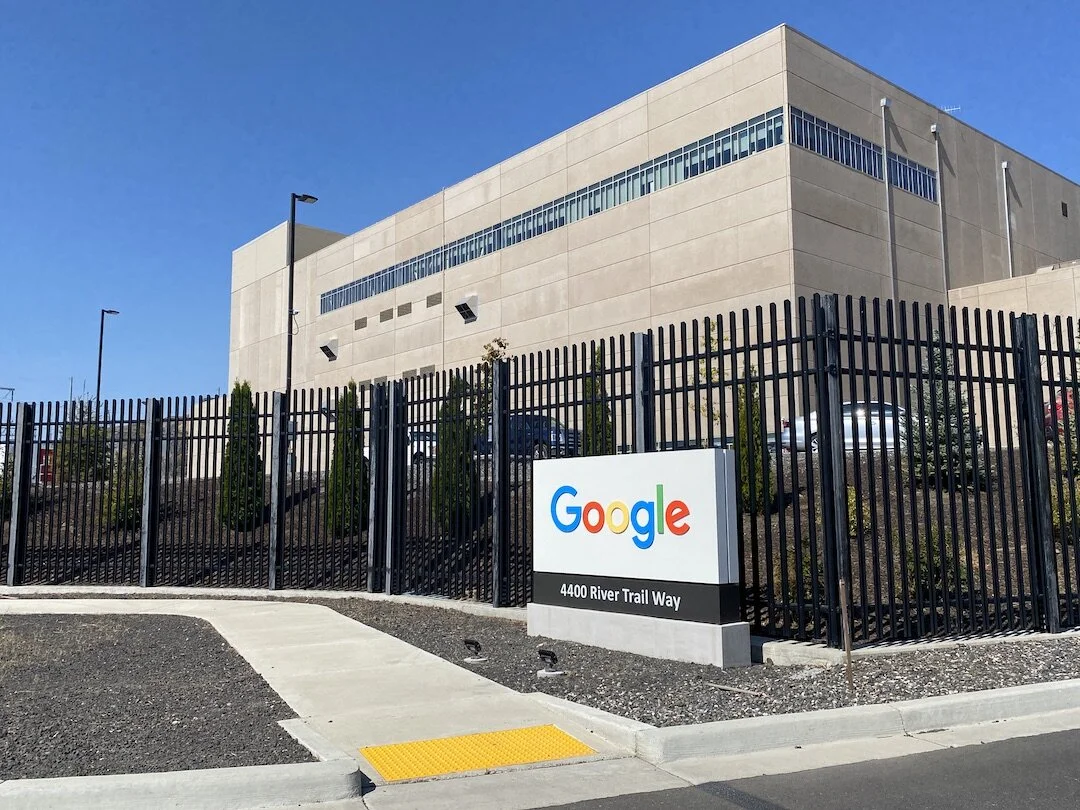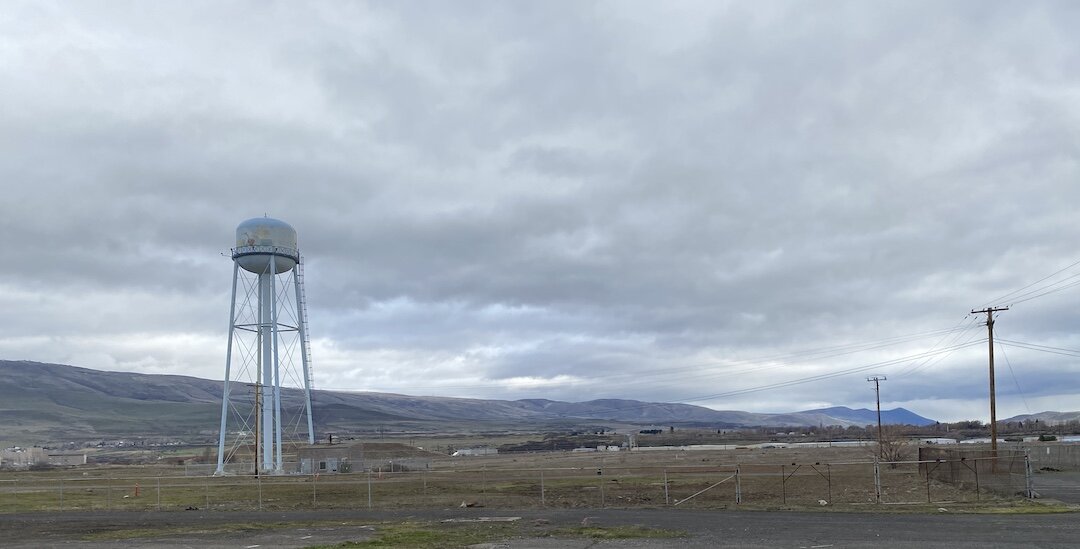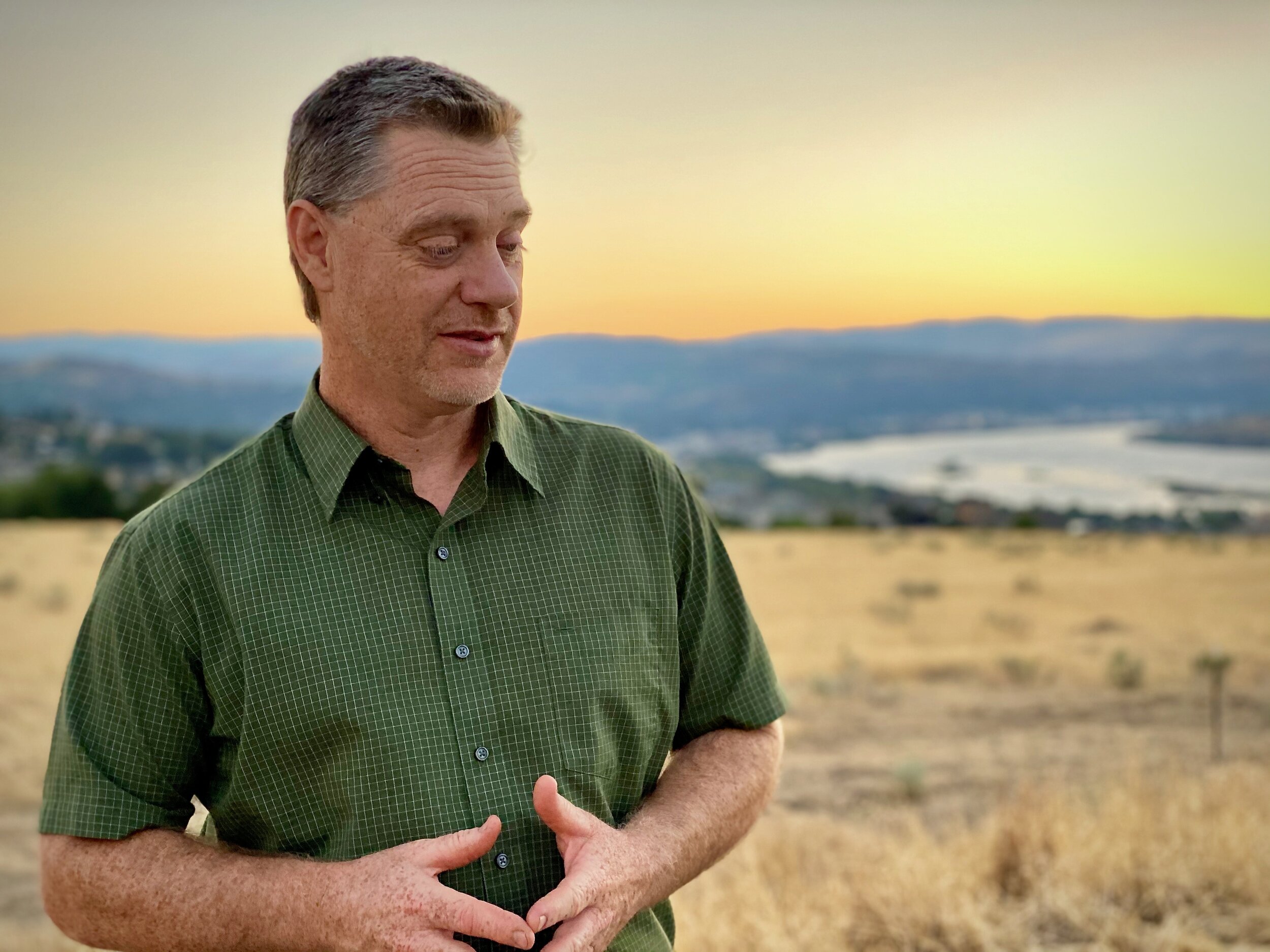TD City Council hears concerns on Google's Water Need
By Tom Peterson
The Dalles City Council drew an audience of 74 and comments from 14 as they discussed a plan to provide billions of gallons of water to two new proposed Google data centers in the Port of The Dalles on Monday, Sept. 27.
City of The Dalles Public Works Director David Anderson
It appeared from Monday’s discussion that a majority of Councilors were in favor of doing a $28.5 million upgrade to The Dalles potable water system at Google’s expense.
However, Councilors Dan Richardson and Darcy Long-Curtis said an additional climate study should be included in the 20-year master water plan, which will be updated if the deal goes through.
Concerns about having enough water to supply the tech giant stemmed partially from Google’s unwillingness to publicly disclose the amount of water they need.
Google and The City of The Dalles have a non-disclosure agreement about water. Google says it’s a “trade secret.”
Google’s competitors could use the information to reverse engineer their data plants and gain a competitive advantage, said City Attorney Jonathan Kara. He said Oregon law allowed for the secrecy, but city officials knew the exact gallons requested to develop the water system plan.
On Monday night, community members voiced concerns about water scarcity, climate change, wells going dry, endangering fish, and the City’s water and payment negotiations with Google.
Public Works Director Dave Anderson while not disclosing Google’s amount of requested water, said this plan has Google using less than 1.4 billion gallons of water annually for the two data centers.
The City will get an actual net increase of water supply through the agreement and build-out of the system, he said.
Google has purchased water rights of 3.88 million gallons of water per day from Northwest Aluminum and is willing to give it to the City if they approve the deal.
Two new wells capable of producing 1.4 billion gallons of water per year would be placed on the former aluminum smelter site in the Port of The Dalles if the City agrees to build out the potable water system. Google is willing to pay the $28.5 million price tag. Contractors have already torn down the reservoir seen here.
Anderson, a 33-year veteran of the potable water system in The Dalles, told Councilors he was confident through long-range planning that the City could deliver the water with no effect on other users.
City Councilor Dan Richardson
“The deal looks pleasantly beneficial to us,” Richardson said. “It meets Google’s needs and meets the greater community needs now and in the future.”
“That is exactly my reading of it,” said Anderson.
To read a detailed explanation about the plan, read CCCNew’s original story here.
Wells
Vance Ellett, who relies on a well for water outside of city limits, asked if he had “any protections if his pump goes dry. I can’t fight Google. I don’t have the dollars they have.”
Anderson said Ellett’s well should not be affected by drawing more water out of The Dalles Groundwater Reservoir as it was separate from Ellett’s aquifer.
“We’re not going to cause a drawdown,” Anderson said, adding a fault serves as a boundary between the two groundwater reservoirs.
Benjamin Damm told Councilors he intended on drilling a well on Pleasant Ridge south of The Dalles. He asked for clarification on underwater reservoir boundaries between Pleasant Ridge and The Dalles Groundwater Reservoir.
Anderson said the southern boundary of the reservoir was not known.
“What happens if it does affect people on the outskirts,” he asked. “Is there any recourse?”
Anderson said if the water levels drop, the Oregon Department of Water Resources will work to stabilize the drawdown through limitations.
“What gives me confidence is the amount of capacity in The Dalles Groundwater Reservoir and we are using significantly less,” Anderson said.
Anderson said the plan calls for using less than the 5,500 acre-feet of groundwater that the aquifer provides annually.
Who Comes First
Mike Ballinger asked who would get water first - residents or industry - in the event of a severe water shortage.
Anderson said the City has an emergency plan that triggers curtailment of low priority water uses.
“Outdoor irrigation would be curtailed before uses at the hospital or industries,” he said.
Water System Studies
Public Works ordered three separate studies in making conclusions on whether the city could produce and sustain a water production system that would go from its current capacity of 9.9 million gallons per day to 17.5 million gallons per day.
Those studies were done by GSI Water solutions, RH2 Engineering and Maul Foster & Alongi with input from City staff.
Upon questioning by Damm, Anderson said the reports were designed and directed by city staff but were paid for by Google.
“That raises a flag,” said Damm. “When someone pays for the research that went into it, it comes back all positive.”
Anderson assured him that was not the case due to the city staff’s ‘integral’ involvement.
Climate Change
Dawn Rasmussen and Ellett both pointed out that rainfall has been declining. Ellett said 21 of the last 31 years in the area were short of the average. They asked what happens if water supplies dwindle. Rasmussen said it can take between 2 and 9 years for water to enter an aquifer.
“The elephant in the room is climate change,” Rasmussen said. “We’re going down in moisture replenishment in winter months, and we are banking on the water being there. But if there is nothing to put in the pipeline where are you?”
Anderson said that the City has been taking climate change into consideration for years, and it influenced the current plan. He said they intend to pump treated surface water from The Dalles Municipal Watershed into The Dalles Groundwater Reservoir during wet months. It is a hedge against climate change. In a single year, he said they would be able to store 244 million gallons underground. In addition, he noted The City will replace the Dog River pipeline in the year to come, saving a million gallons of water loss per day during peak runoff days.
Industrial Use Water Temps and the Columbia River
Steve Murray and Bruce Schwartz both brought up concerns about raising the temperature of the Columbia River through heated industrial water.
Anderson said those temperatures, are regulated by The Department of Environmental Quality and require modeling so that temperatures meet the standard after mingled at the City’s wastewater treatment plant. He said it ensures effluent into the river is meeting those requirements.
Outgunned?
“I would like to know from Mayor Mays, who on your Council including yourself is legally qualified or specifically educated to handle a legal negotiation as massive as the one our city is in with a worldwide corporation such as Google? How do you justify making the decision to handle this community altering negotiation with no outside professional legal firm, while Google has an entire team of top notch lawyers from universities including Yale, Harvard and Berkeley which are handling their side of the negotiation,” asked Sarah McKenna
Several people at the meeting, in fact, pointed out that City Council and Staff were up against a team of Google attorneys.
Oregonlive.com produced a story on Monday posing the same question.
Mayor Rich Mays responded stating that they have both City and County attorneys to rely on. “County and City staff are very capable of negotiation agreements at this time,” he said.
“So, you have no outside attorneys helping negotiate with a worldwide corporation,” Mckenna retorted.
Others at the meeting stated it would be to the City’s benefit to get some additional legal help.
Mike Courtney disagreed.
He called it ‘BS’ and stated the City’s legal team included Kristen Campbell who attended Michigan State and clerked for the Michigan Court of Appeals and Jonathan Kara. Kara, the City’s attorney is a graduate of Golden Gate University School of Law. In law school, he clerked with the San Francisco City Attorney’s Office on the team responsible for representing the City’s energy interests before the California Public Utilities Commission and the Federal Energy Regulatory Commission. He was later invited back to assist the City’s municipal utility department on matters of water rights and land use, according to his profile.
Fluoride and Chlorine
Karen Mackey asked if treated water that would be pumped into the groundwater reservoir would contain fluoride and chlorine.
Anderson said it would and that The Dalles Groundwater Reservoir contained the same amount naturally. In addition, he said The Department of Environmental Quality allowed for treated water to be used for replenishing a groundwater source.
Oct. 25
The water plan as well as the overriding financial agreement with Google for the new data centers is slated to go before Councilors again on Oct. 25.




